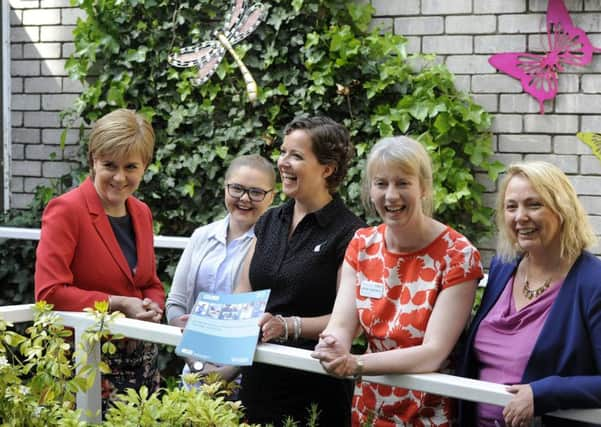Scots cancer patients rate care but '˜more to be done'


Around 94 per cent of patients rated their care positively but concerns were raised as only half of respondents felt they were given enough support by health and social services during treatment.
The first ever Scottish Cancer Patient Experience Survey also revealed that only half of the 5,000 patients surveyed were directed to financial support or benefits by hospital staff, and a fifth could not find someone to talk to about their fears.
Advertisement
Hide AdAdvertisement
Hide AdNearly 300 patients visited their GP with symptoms more than five times before being referred to hospital. Cancer campaigners called for efforts to close the “truly startling” gulf between the experience of patients with a vital care plan and those who had not.
The survey found just 22 per cent had a care plan, and these patients responded more positively across all 50 questions.
Janice Preston, Macmillan’s head in Scotland, said: “This survey shows that without a doubt, offering patients a holistic needs assessment and care plan is vitally important in ensuring they have a good experience of care.
“The gulf in the patient experience had by those who had a care plan compared to those who didn’t is truly startling, particularly when it comes to accessing emotional, practical and financial support.”
Speaking at the launch at the Western General Hospital in Edinburgh, First Minister Nicola Sturgeon said: “It is heartening to know that in the majority of cases, patients are satisfied with the care they receive.
“We know there is more to be done and that’s why earlier this year we announced our £100 million cancer strategy, which makes clear the importance of listening to what people with cancer are saying about what matters to them, and acting on what they tell us.”
Calls were made for urgent action to improve support services.
Labour health spokesman, Anas Sarwar said: “There’s clearly a need to provide greater access to wider emotional, financial and practical support for patients.
“We know that too often in Scotland where you are from and how much you earn determines how likely to are to be diagnosed with, and survive, cancer.”